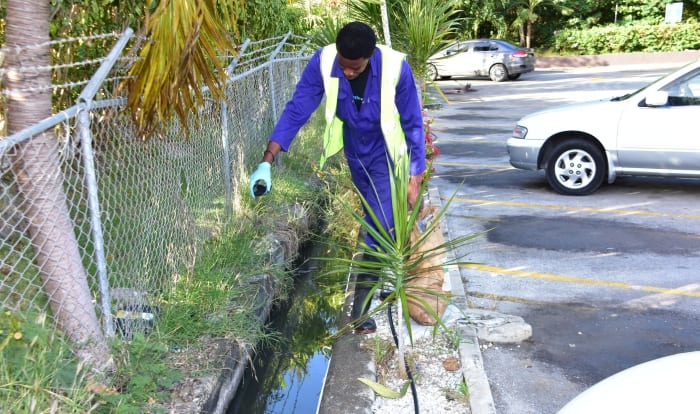By Sheria Brathwaite
The island’s milk supply is running low, dairy farmers said Thursday, prompting them to import just over 200 pregnant heifers to return production to sustainable levels.
President of the Barbados Beef and Dairy Association Annette Beckett told Barbados TODAY the farmers’ plan to invest more than $1.5 million to import the cows would save the industry from collapse.
She blamed extreme heat for a significant drop in milk production last year.
“The major issue that impacted the milk supply was the climate,” the experienced dairy farmer explained. “The heat in August, September and October affected the cows tremendously and some farms were down by as much as 40 per cent. Because of the heat, the cows were not eating; it affected their appetite and they were lethargic.
“For those three months, production was down, down, down, which is really bad. So, currently, we are in the process of trying to build back up the supply and while there has been some improvement, it is not enough to bring the supply back to [comfortable] levels. So we are seeking to import cows.”
Beckett said the situation was so dire that if “we can get them tomorrow, we will like them because the sooner we get them the better”.
Last year was the hottest on record with temperatures surpassing those of the pre-industrial era, meteorologists said. The sweltering heat put the cows under severe heat stress and into survival mode.
In 2023, dairy farmers produced just over 2.2 million kilogrammes of milk after producing just over 3 million kilogrammes the previous year. The island’s milk production, since 2013, ranged from 3.4 million to 3.9 million kilogrammes, according to the dairy association.
Beckett said the producers had identified a farm in the United States where they plan to bring the heifers from, adding that when they arrive, they would be about six months pregnant and would start to produce milk after three months.
CEO of the Barbados Agricultural Society James Paul.
The price for a pregnant heifer is roughly $7 500 and under a rebate system, the farmers recoup about 40 to 50 per cent of the cost.
The dairy industry imported pregnant heifers in 2016 and 2020 and Beckett said farmers were still paying back loans for those animals.
To ease the financial burden on the farmers, she said the industry was in talks with the government on seeking additional financial assistance.
“The Ministry of Agriculture asked us to produce a paper about the dire straits that the industry is in,” Beckett told Barbados TODAY. “We did and that paper was supposed to go to Cabinet and a decision was to be made in terms of if [the] government would be able to help us monetarily when we import the cows. So we are just waiting to hear back from them. The farmers would have been under financial strain as well because we imported cows two years ago and we are still paying back for them; so we need some assistance there as we look to import over 200 cows.”
The dairy farmers’ leader said that the industry submitted the papers several months ago.
Asked how soon Cabinet will be making a decision, Agriculture Minister Indar Weir said he could not speak to any matters going before Cabinet.
Beckett stressed the imported heifers would give the dairy industry a much-needed boost.
“Some farmers want as many as 50 cows and some want as [few] as 15 or 20 cows,” she said. “There are one or two farmers whose herds are at a good place right now and they don’t need to supplement them, but the majority of the farmers need cows to bring them over the slump that they are in now. So getting these in calf heifers with an average production of 15 to 18 kilogrammes daily . . . will send up our production very well.”
For the past few years, dairy farmers have been struggling to make ends meet as they face hikes in fuel, electricity and water rates and a drop in the quality of hay.
Supporting the importation plan, Chief Executive Officer of the Barbados Agricultural Society James Paul said the new herd would also help farmers improve their animals’ genetics and hybrid vigour.
He added that even when the heifers were imported, farmers needed to pay more attention to their breeding programmes.
Paul said: “Some farmers have been doing extremely well in terms of getting the animals bred, while some farmers have been experiencing issues, and maybe what we need to do is to look to see whether or not we are engaging in the correct breeding practices on the farm and that we are managing the genetics properly.”
The low quantities of milk have also impacted Pine Hill Dairy’s exports, Barbados TODAY has learned.
The island’s lone milk processor has increased the farm gate price of raw milk paid to farmers twice in as many years. In 2022, the price moved to $2.73 per kilogramme from $2.60 per kilogramme. Last year, it increased by five per cent to $2.86 per kilogramme. A kilogramme of milk equates to roughly 0.97 litres.
sheriabrathwaite@barbadostoday.bb
The post Investment in imported heifers to save dairy industry appeared first on Barbados Today.


